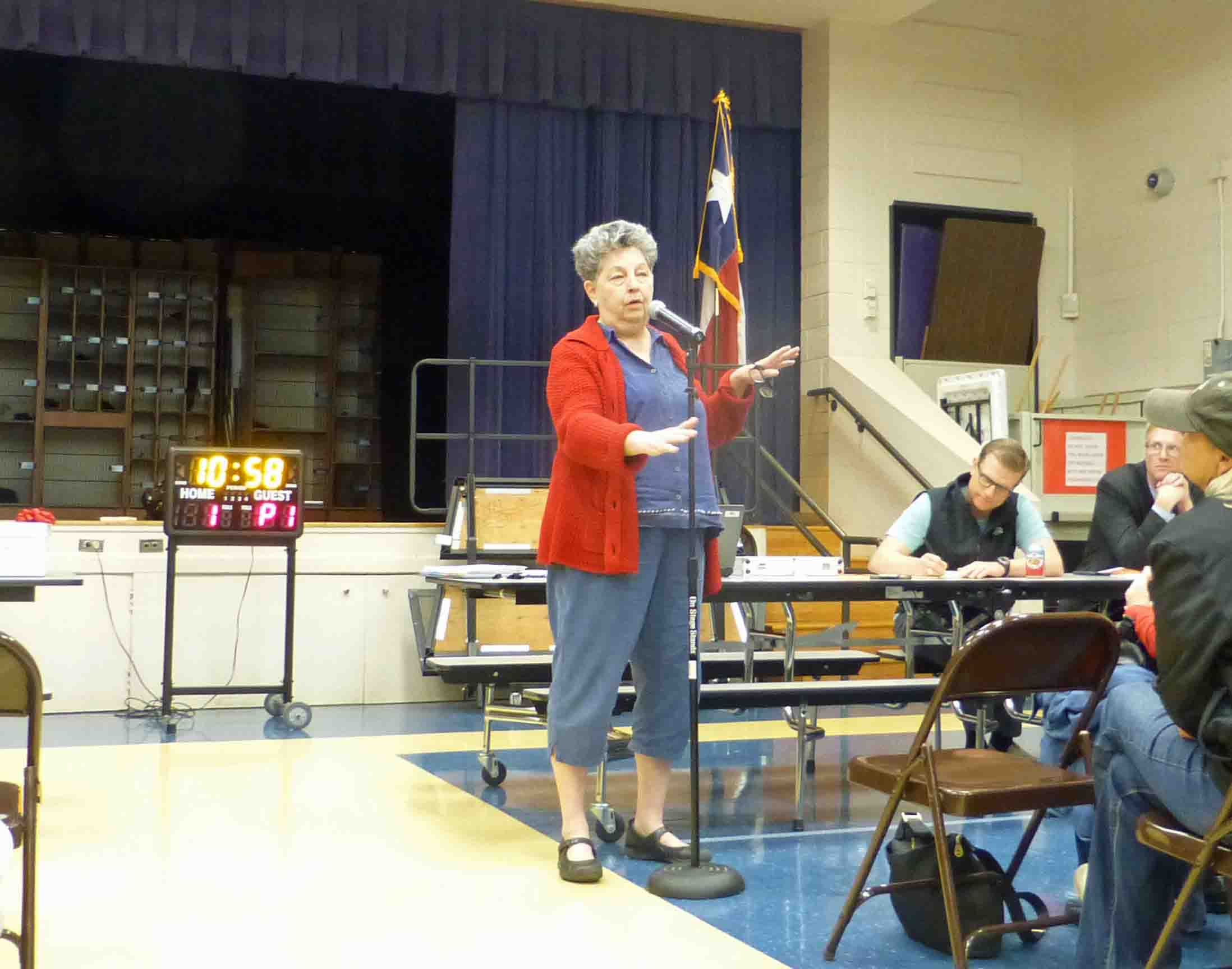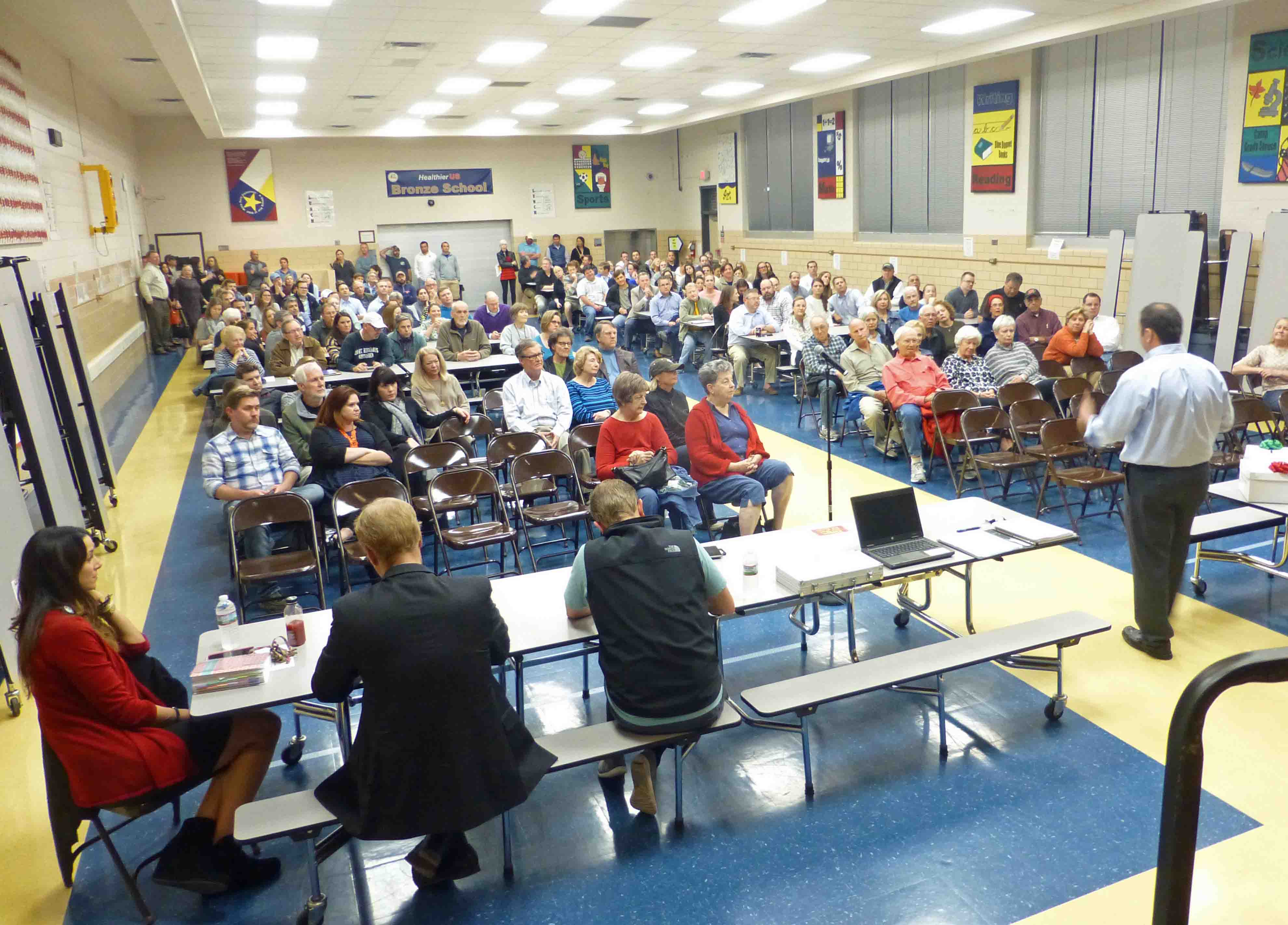
Joyce Butler, who walked door-to-door in 1978 to get the property’s original deed restrictions passed
Members of the White Rock Valley Neighborhood Association were geared up last night to fight Richardson ISD’s plans to build a new school at White Rock Trail and Walnut Hill. A few – with widespread support – had crafted a resolution at their November 14th meeting to formally oppose the school and the group was to finalize the vote Monday night. Before the meeting, though, the district threw them a curveball. They gave in.
RISD spokesman Tim Clark messaged WRVNA President Richard Duge:
“Dr. Stone announced at the November 7 Board meeting that the district is no longer pursuing the White Rock Trail site as an option to address enrollment growth at White Rock Trail Elementary, and planning related to a new school at the property was suspended indefinitely the first week of November.”
You may read RISD’s full statement, also posted to RISD.org, here.
“Trust is a big issue and it probably has been for a long time,” Duge told the assembled crowd. “Before our vote, I expressed that to [Interim Superintendent] Dr. Stone and I asked her to prepare a statement clarifying the district’s position.”
“This decision,” RISD’s statement went on, “was made so productive discussions with the White Rock Elementary community, led by the new growth/planning consultants (Stantec), could occur without the property being a divisive factor.”
“We’ve spent a lot of time criticizing RISD for lack of transparency and trust,” continued Duge, encouraging WRVNA members to keep the lines of communication open with the school district open as it works to determine what comes next for the White Rock Trail property and how best to handle enrollment growth in White Rock and across LH. “Repairing it will take time.”
In light of the change by the district, the motion was amended to oppose altering or terminating deed restrictions on the property instead of simply opposing a school there. Joyce Butler and her now-deceased husband, Norm, went door-to-door with other neighbors in 1978 lobbying for the deed restrictions to promote land uses favorable to the neighborhood.
Speakers rose on both sides of the issue to plead their case and enjoyed polite attention and applause, but when Butler herself stood to speak, no one moved.
“One of the reasons they put the restrictions on that property, as well as I can recall because I was mostly washing dishes,” Butler joked, “was to make sure there was low traffic and low occupancy. Everybody in the development business wanted to see apartments on that land and where Hollywood Door is and where the Alzheimer’s unit is.”
“The neighborhood association is who put the deed restrictions on here in the first place,” Butler continued, “and it is absolutely the appropriate organization to take a stand for how this neighborhood is going to look. Something that is humorous to me, is that when my daughter, who was born in 1977, went here, they almost closed this school due to lack of enrollment. Demographics change. It may be a flood [of students] now, but ten years from now, things may change. There’s no doubt in my mind that RISD can produce an excellent new school, but they need to present it in an excellent location. I don’t think the district needs another school that no homeowner will go to.”
“I’m really glad we’re focused now on enforcing the deed restrictions that were put in place in 1978,” said Adam Chabira. “Whatever ends up at this location we’ll probably have to live with for 50 years. It’s really easy, for those of us with school-aged kids, to be passionate about our kids, but what gets built there will be there way beyond when they’re done with elementary school.”
The motion, intended to send a signal to RISD and the City of Dallas, passed 178 to 17.






